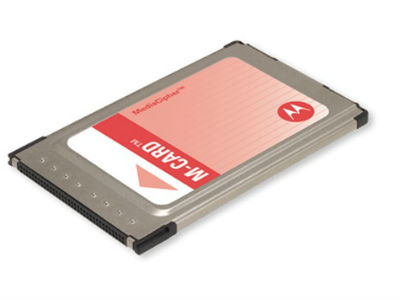FCC Group Starts To Seek CableCARD's Successor
The smarter way to stay on top of the multichannel video marketplace. Sign up below.
You are now subscribed
Your newsletter sign-up was successful

Is the notion of “black box” that can support video services from all forms of multichannel video programming distributors a discrete piece of new hardware or merely a metaphor for a more virtualized component or chip that can be embedded inside set-tops and other video devices?
That was one of many questions weighed last Monday (February 23), when the Federal Communications Commission-appointed Downloadable Security Technology Advisory Committee (DSTAC) held its first meeting.
The group, comprised of 18 individuals from companies such as Dish Network, Amazon, Comcast, Cablevision Systems, Charter Communications, TiVo and Google, is tasked with investigating the successor to the CableCARD, a removable security module that failed to create a vibrant retail market for cable-ready retail video devices, and file its recommendations by September 4.
The committee is tackling the idea of a uniform solution even as other MVPDs, including Charter and Cablevision, have already developed and deployed downloadable security systems. Comcast and TiVo, meanwhile, are also pursuing a non-CableCARD solution.
The initial meeting focused on the scope of the report, including which types of navigation devices and the types of content and services – including linear TV and on-demand video -- should fit inside it.
The notion of an all-MVPD black box outfitted with downloadable security dominated the early discussions, though what form it will take remains an item that still needs to be clearly defined.
Talks gravitated toward a virtual module or even a chip that can support the baseline input and output requirements of pay-TV operators. That could end up spanning elements such as service discovery, channel tuning/content requests, emergency alert system information, closed captioning data, copy control information, subscriber authentication, and the audio and video streams themselves.
The smarter way to stay on top of the multichannel video marketplace. Sign up below.
There are already factions forming on what this black box shouldn’t be.
Joe Weber, the chief technology officer for TiVo’s Service Provider Business Unit, warned that it would not be feasible for a retail CE company to support a multitude of separate devices that sits between it and the retail device from a wide range of MVPDs
Concerns were also raised that adding yet another power-sucking device to the mix runs counter to the desire to lessen the pay-TV industry’s already sizable carbon footprint.
Alan Messer, vice president of advanced technology for Samsung’s Advanced Technology Lab, expressed some uneasiness about a so-called black box taking the form of a new chip, noting that it could significantly raise the materials costs for makers of TVs, DVRs and other retail video devices. Such a chip "might not be the right mindset,” he argued.
Also up for debate is whether over-the-top services should be considered in the committee’s upcoming report, which is being researched as the FCC shoots for new rules that will would define some online video providers as MVPDs, at least with respect to access to cable and broadcast TV programming.
Mark Hess, SVP, office of the CTO, business and industry affairs at Comcast Cable, suggested that it will be difficult to exclude OTT from the discussion in a meaningful way given the current state of the video marketplace.
“It is an error to ignore it,” agreed Kenneth Lowe, vice president and co-founder of TV maker Vizio.
The process will also prove to be a challenge for MVPDs, such as satellite TV operators, that were not required to adhere to the original separable security rules. Dish Network, for example, is inherently a one-way, downstream-only platform. While its boxes do use broadband connections for upstream communications, they are out of Dish’s control and, therefore, not something that is fully reliable or secure.
“DBS is going to be the problem child here and bring in some unusual challenges,” John Card II, director of standards and technology, at EchoStar Technologies/Dish Network, warned.
While some on the committee are pushing for a successor that’s based on IP-based transport, others warned that MVPDs are not migrating there in lock-step.
“Not all operators move at the same timeframes,” Milo Medin, vice president of access services at Google, said. The challenge, he added, is to focus on solution that succeeds the CableCARD “without a multi-year gap.”
Another concern is whether metadata will be included in the downloadable security platform. Hess pointed out that MSOs such as Comcast strike separate deals for metadata and the rights on how they can use them. “There are a lot of subtleties to this as we go deeper,” he said.
FCC Chairman Tom Wheeler paid the DSTAC meeting a visit, thanking the group while also acknowledging that the task ahead won’t be easy.
“Congress gave us a non-trivial task that you all know so well,” he said. “We are under no allusions about the challenge that that mandate represents.”
